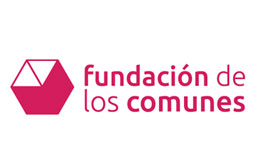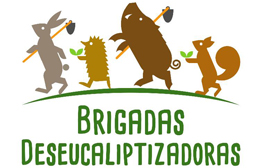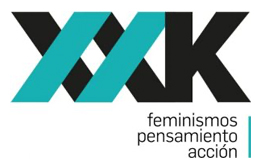This video has timestamped descriptions to allow viewers to jump to particular topics and sections. Links will open the video in YouTube.
Who are you and what is your relationship with the Fundación de los Comunes (Foundation of the Commons)? 00:18
What is the Fundación de los Comunes? 00:37
Who started the Fundación de los Comunes and why? 01:19
Why did you choose a foundation as your legal entity? 04:16
What relationship has there been between Fundación de los Comunes and 15M? 06:49
Who coordinates this network and how is the coordination accessed? 09:27
You’re employed as a general coordinator of the Fundación de los Comunes. What is the story behind the creation of the Foundation as a legal entity? How did you become its coordinator? 12:11
Is it common to hear a certain regret regarding the tendency of inbreeding within the social activist groups themselves? How do you ensure that a space like the Fundación de los Comunes is an inclusive, constructive, and democratic space? 15:54
Based on what you’re saying, I understand that the Fundación de los Comunes, in some way, is a space of reference and brings together paths of citizen political transformation. How is it validated as a reference or authority? 20:42
Thinking about the asymmetry of time, capacities and material resources as a product of capitalism and its way of organizing society in well differentiated social classes, how does the Foundation ensure that it brings together a diversity of positions and reaches people who do not normally appear in this type of course or in this type of Social Center? 22:13
Can you explain what your experience has been with the Institutional reality? 29:09
Being part of the non-formal education movement, what relationship do you have, if any, to the Public Education Institution? 33:06
Thinking about the sphere of labor, are there workers hired by the Foundation? 33:52
And within each of the nodes that support the Foundation there are people who earn a wage and others who don’t, right? 36:20
What does it mean for you to work in this context? How does this change your perspective of the work? 37:51
When I spoke to other activists about this form of making work compatible with activism, they warned about the danger of self-exploitation. Has this been your case? 38:48
What does the Fundación de los Comunes mean by “common goods”? 40:23
How is a “common good” managed? 42:43
Do you differentiate between the public, the common and the social spheres? 45:42
We’re talking about the common sphere and really, we’re referring to a project of non-capitalist society. Can you explain to us what kind of social-political project is thought from a Fundación de los Comunes? Is Municipalism your political commitment to achieve this social-political project? 51:43
Given the climate of political discontent and instability, what keeps hope and energy alive in the Fundación de los Comunes? 1:00:24
What does it mean for the Foundation to “grow”? 1:02:39

The Fundación de los Comunes (the Commons Foundation) is a statewide network of collectives that spans different cultural areas and comprises culturally and politically driven groups working for a process of social democratization. Throughout the Spanish State, the FdlC has operational hubs in Iruña/Navarra, Barcelona, Terrassa, Zaragoza, Madrid y Málaga. The social centers at these geographical points—Katakrak, Ateneu Candela, la Casa Invisible y Traficantes de Sueños—are also home and incubator for different research groups—OMB, La Hidra, A Zofra, OMM and Ulex—and also where our self-education programs take place within the framework denominated Nociones Comunes.
The genetic makeup of our foundational bodies is defined through the concepts of self-management, horizontal decision making, the socialization of material and immaterial resources and support for the common, i.e., opening our spaces to the social good and providing universal access to what we produce through Creative Commons licenses. In short, democracy and free culture. Material support for this machinery is a core issue as we can only aspire to achieving our ends by ensuring increasingly greater stability and consistency for our productive enterprise. Our vocation is to generate affective communities and political alliances; we must have a base of sustainable livelihood for those of us who are engaged in this challenge—forging work and political commitment into a way of life.
Each configuration procures self-funding through different productive activities such as bookselling and publishing. The Foundation, on its part, strives to attain resources for the whole through collaborative agreements with other institutions, submission of projects to European and statewide competitions and application for funding from private legal entities. We also have alliances whose generous and regular donations are fundamental for our sustenance.
This entire complex structure exists in order to wholeheartedly contribute to a social transformation, one able to democratize—politically and economically—how we organize the common. Our contribution to social transformation adopts a productive model, creating new paradigms for interpreting reality that come about through research, analysis, discourse and spaces for self-education. Source





